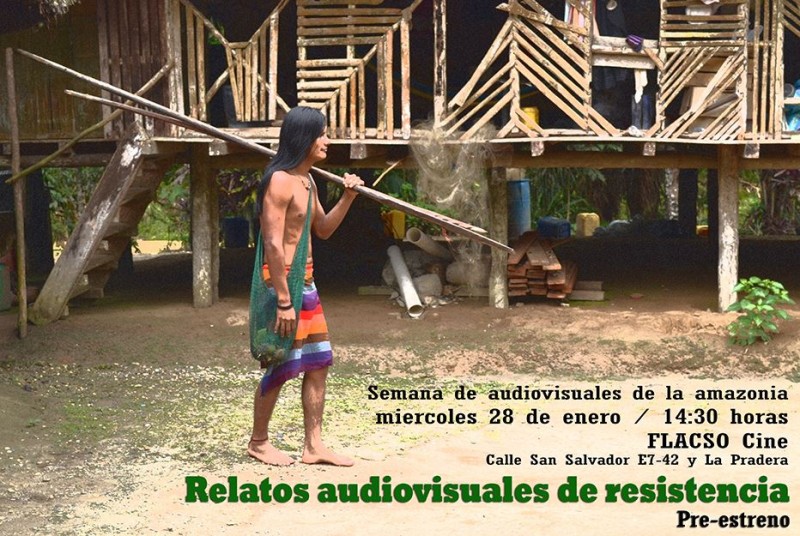
An invitation to a forum for the premiere of the Sarayaku videos.
The Kichwa people of Sarayaku have had a long and well-documented struggle against oil, gas, and mineral extraction on their territory, located in the southern-central part of the Ecuadorian Amazon. In defense of the lands, the Sarayaku community has taken advantage of digital media's reach to tell their story of opposition to drilling there. Co-produced with the community, the award-winning documentary “Children of the Jaguar” offers a glimpse of this resistance.
The success of the documentary inspired a new generation of indigenous filmmakers to produce their own films. Filmmaker Eriberto Gualinga is one of the leaders in this area, and has uploaded a number of short videos to his YouTube channel. In addition to video, the community has set up a website and is very active on social media channels such as Twitter (@Sarayaku_Libre) and Facebook, which allows them to keep in touch with their supporters and report directly on any new developments.
While the Inter-American Court of Human Rights (IACHR) ruled in 2012 in favor of the Sarayaku community, stating that the Ecuadorian government must consult with affected communities before signing exploration or drilling contracts, the people of Sarayaku still face ongoing pressures.
As a way to continue to explore the various uses of participatory video tools, the Sarayaku community partnered with El Churo Collective to train young people from the community as well as other surrounding indigenous communities to learn how to create digital videos that capture their realities and to reaffirm their commitment to preserving their natural surroundings. The project was a Rising Voices grantee in 2014 as part of the Rising Voices Amazonia initiative.
In this first video from this project, the narrator speaks in the Kichwa language stating the importance of water for the Sarayaku people. Through the use of the Amara subtitling platform, the video is now available with English subtitles and open for others to add subtitles in other languages.
These videos premiered at various events in Quito and Sarayaku, followed by discussions and debates regarding the topics raised in them. We'll be featuring more of the videos from the project over the next few weeks.








9 comments